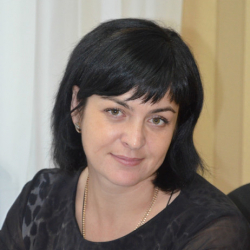
Present Continuous (Progressive) Tense
Подготовила: Манерко С.С., учитель английского языка
МБОУ СОШ №20 г. Минеральные Воды

Present Continuous (Progressive) Tense
Употребляется для выражения длительного действия, которое происходит в настоящий момент (в момент речи).
Слова-подсказки:
now
at this time
at this moment
at present moment
at present
Грамматически the Present Continuous Tense образуется при помощи вспомогательного глагола to be в настоящем времени (am, is, are) и добавления окончания -ing к смысловому глаголу.

Утвердительное предложение
I am play ing golf now.
He is read ing at this time.
Kate is go ing home at this moment.
It is snow ing at present moment.
They are ski ing at present.
Правила орфографии:
to swim – swi mm ing
to write – writing
to cry – crying
to ski - skiing

Отрицательное предложение
Частица not ставится после вспомогательного глагола.
I am not playing golf now.
He is not reading at this time.
Kate is not going home at this moment.
It is not snowing at present moment.
They are not skiing at present.

Вопросительное предложение
Вспомогательный глагол to be (am, is, are) ставится перед подлежащим.
Am I playing golf now?
Is he reading at this time?
Yes, I am.
Yes, he is.
Yes, I’m playing golf now.
Are they skiing at present?
Yes, they are.
Yes, he’s reading at this time.
No, I am not.
No, he is not.
No, I’m not playing golf now.
Yes, they are skiing at present.
No, they are not.
No, he isn’t reading at this time.
No, they are not skiing at present.

2. Special question
Вопросительное слово ставится перед вспомогательным глаголом.
Who is playing golf now? (“Who” – 3 лицо, ед. число) – вопрос к подлежащему
What am I doing now?
What game am I playing now?
When am I playing?
Who is reading at this time?
What is he doing at this time?
When is he playing?
Who is skiing at present?
What are they doing at present?
When are they skiing?

3. Alternative question
Is he or Kate reading now?
Is it snowing or raining at present moment?
Are they or am I skiing at present?
4. Disjunctive question
Если предложение утвердительное:
I am playing golf now, am not I?
He is reading at this time, isn’t he?
Yes, I am.
No, I’m not.
Kate is going home at this moment, isn’t she?
It is snowing at present moment, isn’t it?
They are skiing at present, aren’t they?
Если предложение отрицательное:
I am not playing golf now, am I?
No, I’m not.
He is not reading at this time, is he?
Yes, I am.
Kate is not going home at this moment, is she?
It is not snowing at present moment, is it?
They are not skiing at present, are they?

Во временах группы “Continuous (Progressive)” , как правило, не употребляются глаголы:
to appear
to believe
to feel
to forget
to consist
to love
to notice
to seem
to hate
to contain
to understand
to desire
to possess
to hear
to know
to enjoy
to recognize
to want
to wish
to like
to remember
to see

























